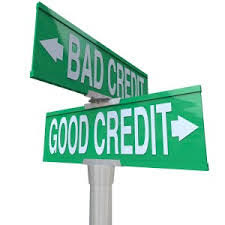October 26, 2016
Shawn Lane
Consumer Credit Expert
Having a good credit score is so important today. Good credit scores get you lower interest rates, higher borrowing limits, lower insurance premiums, better quality rental properties, and even the American dream of home ownership! Good credit does not just happen – you have to earn it! And once you earn it, you have to work to keep it! Whether you have great credit now, or you have had some issues in the past and you are working to rebuild your credit score, be sure to avoid these 4 costly credit mistakes!
Mistake #1 – Paying late
Since 35% of your credit score is based on your payment history, it is vitally important that you pay your bills on time. One of the quickest ways to lose 60 to 120 credit scores points is to miss a payment, causing you to be reported 30 days past due. Although it may be just a simple mistake, it is a very costly mistake. The result will be a lower credit score, which can cost you thousands in higher interest rates or worse, being denied credit. Simply put, don’t pay late.
Mistake #2 – Charging too much on credit cards
As much as 30% of your credit score is based on your credit card balances. Credit scoring models look at your credit card balances as a percentage of your credit limit. This is called your utilization percentage. If your utilization percentage is high, your credit score will be penalized. “But I pay my cards in full each month”, you say? This may not matter, as the credit card companies report your activities to the credit bureaus around the same time that your statement is sent, catching you with your highest possible balance each month. Keep your balances low, below 20% of the credit limit. Make multiple payments throughout the month to achieve this, if necessary.
Mistake #3 – Applying for credit too frequently
10% of your credit score is based on how often you apply for new credit. It is understandable that in a given year, you may need to apply for a new apartment or home mortgage, a new utility service, a new car loan, or even a new credit card. Just be very careful with this one. Credit scoring models frown on too many credit pulls resulting from new credit applications, which can negatively impact your credit score. Apply for new credit sparingly, only as needed.
Mistake #4 – Ignoring your credit report
Don’t assume that you have good credit now, just because you had good credit the last time you applied for a loan. Something may have changed, and your credit score may have dropped. Maybe the equipment you returned to your cable provider the last time you switched companies never arrived, resulting in a new collection debt reported to your credit reports. Or maybe your medical insurance denied your claim, leaving you with a past due medical bill that ultimately went to collections. What’s more, mistakes do appear on credit reports as much as 21% of the time, according to a study released by the Federal Trade Commission in 2013. That’s one in five people! This study found that many of those errors lead to consumers paying more for loans and insurance premiums. Don’t assume your credit is still good; check it monthly. If you find a problem, you have time to address it, rather than finding out when you are applying for a loan. There are many good credit monitoring companies to choose from. Be sure to select one that provides information on all 3 credit bureaus. A good start is to order a 3 bureau report from Identity IQ for just $1, by going to www.totalcreditscores.com.
Call me if you or your clients need assistance with their credit, or if you have any credit related questions!

